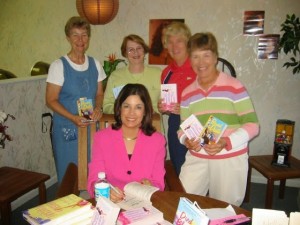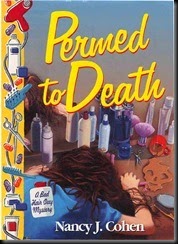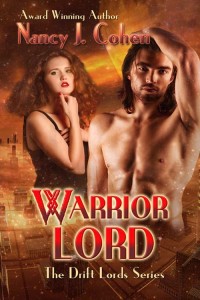 Back in 2015, I was chatting with a dear writer friend, Paul Dale Anderson, about the different types of writers and readers.
Back in 2015, I was chatting with a dear writer friend, Paul Dale Anderson, about the different types of writers and readers.
If you’re a new writer searching for your voice, understanding which classification you fall into might help. Professional writers should also find this interesting.
Some of you may be familiar with Neurolinguistic Programming (NLP). Though many call it junk science, most agree with the basic theory behind it: Our brains process information through one of our five senses. Though some rare individuals favor their sense of taste or smell (usually together, and these people are often chefs or perfumers), for most of us, it comes down to either visual, auditory, or kinesthetic.
Kinesthetic links the process of learning to physical activity. Meaning, kinesthetic people can read or listen to instructions, but deep learning occurs via the process of doing. Obviously, this doesn’t mean kinesthetic readers need to act out the plot — though that’d be cool to watch! — they better absorb the storyline when it relates to experiences and actions.
Clear as mud? Cool. Moving on…
Paul Dale Anderson authored 27 novels and hundreds of short stories. He earned graduate degrees in Educational Psychology, taught college-level Neurolinguistic Programming (NLP), and earned an MA in Library and Information Studies from the University of Wisconsin. He also taught creative writing for Writers Digest School (both Novel and Short Story) and for the University of Illinois at Chicago. Paul was also a Certified Hypnotist and National Guild of Hypnotists Certified Instructor.
Sadly, the writing community lost our dear friend Paul on December 13, 2018. You can still plant a tree in his honor here, which I just discovered. Seems fitting for such a kind and generous soul. Anyway…
What he shared with me in 2015 is pure gold. And today, I’ll share it with you. The italicized paragraphs below are Paul’s words, not mine.
Even from beyond the grave, his knowledge and expertise still dazzles…
Too many writers are unaware of how the human mind processes language. Various structures in the brain—some in the left hemisphere and some in the right—work together to make sense out of symbols. Symbols include, besides alpha-numeric digital representations, sounds, gestures, signs, maps, smells, tastes, and physical feelings. It is the mind that gives meaning to each symbol based on prior associations dredged out of memory. The map is not the territory but merely a representation of the territory.
During conversations with fellow writers at the 2015 Nebula Award Banquet in Chicago, I identified successful new writers by which symbols had salience for them and the way they accessed information.
Some writers were very verbal and had a fluidity of language based primarily on auditory processing of sensory input. Those people were able to instantly duplicate and respond to what they heard as they heard it. Sounds themselves had salience. Those writers are akin to the musician who plays mostly by ear, translating auditory input into kinesthetic output without the additional steps auditory-digital types like me require to process input and output.
I work differently. I “see” stories, then translate them into words that describe my visions. First I see the scenes. Then I see the written symbols that best represent that scene. I see each letter, each punctuation mark, each space at the beginning of a new paragraph, the way words and white space look laid-out on a page, the way each page contributes to the story as a whole.
I write at the keyboard where my fingers automatically translate the symbols in my head into kinesthetic actions that produce the symbols that appear on the screen or piece of paper. I cannot listen to music while writing. Background music interferes with the words in my head. Other writers find that listening to music while writing is a big help.
If you are primarily kinesthetic, you might prefer to write with a pen on paper before revising your works on a keyboard or sending your notebooks to a typist. The feel of the paper itself, the touch of the pen to paper, produces words from your subconscious faster and better than any other process. Kinesthetic writers also love to pound out words on manual typewriters. They write with a flourish that adds to their style. James Patterson is a kinesthetic writer.
If you’re more like me, however, you separate the process into a series of “drafts.” The first draft is primarily visual, and you describe what you see.
The second draft includes imagined sounds, tastes, feelings, smells. During the third draft I read all the words aloud to hear how the words sound and to feel how they roll off my tongue. I add punctuation marks to match my pauses, inflections, intonations. I tend to cut unnecessary flourishes out of my stories unless they add momentum to the plot or help describe a specific character.
If a story is to work, it must engage all of the reader’s senses. Some readers are primarily auditory, some are visual, some are kinesthetic, some olfactory, and some gustatory.
The majority of people in this world are auditory. They respond best to dialogue, to alliteration, to phrasing. If you are primarily auditory like Stephen King, you might find writing easier if you dictate and capture the words into a digital recorder. Kinesthetic people respond best to action and they translate words on paper into muscle movements. If you want to appeal to every reader, you need to reach each of them in their own personal comfort zones.

That last line is a killer, right? No pressure. LOL
I fall into the auditory category, both as a writer and a reader. I write with headphones on, but the music becomes white noise that narrows my focus, transporting me into my story worlds. My first drafts consist of mainly dialogue with no tags and minimal narrative and description. After I gain critical distance, I’ll add sensory details and other enhancements.
As an auditory reader, I can’t listen to audiobooks. I need to read the words to hear the story rhythm. Audiobooks rob me of that.
Paul told us readers fall into the visual, auditory, and kinesthetic categories. For fun, let’s look at reading subcategories as well.
- Motor reader: These readers tend to move their lips and may even mimic speech with their tongues and vocal cords when reading. Their reading range is very slow (150 to 200 words per minute) because they must read word-by-word at the rate they speak.
- Auditory reader: These readers vocalize minimally or not at all, but they do silently say and/or hear the words. They read in the 200 to 400 words-per-minute range. Auditory readers are skillful readers with vocabularies large enough that they can quickly recognize words.
- Visual reader: These readers engage their eyes and minds when they read, but not their mouths, throats, or ears. They can read many words at once because they read ideas, not individual words. They read at a rate of 400+ words per minute.
If we believe Paul, with all his experience and degrees, most people fall into the auditory reader category. If your sentences don’t sing, the auditory reader may DNF your book. We also can’t forget about the visual or kinesthetic reader. Striking the perfect balance for all three can wrench a writer’s stomach, but it’s a goal worth shooting for.
What type of writer are you? What type of reader are you? If you’re an auditory reader, do you enjoy audiobooks? Or can you only hear the story rhythm by reading the actual words?




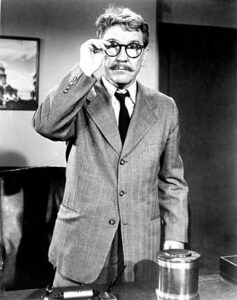
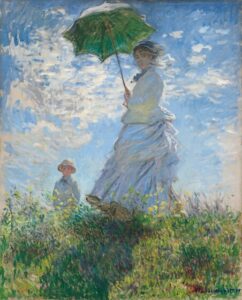 My world no longer looks like an Impressionist painting. I can see individual leaves on trees, blades of grass, street signs (oh, that’s where I was supposed to turn).
My world no longer looks like an Impressionist painting. I can see individual leaves on trees, blades of grass, street signs (oh, that’s where I was supposed to turn).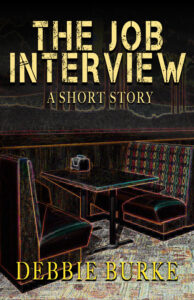
 Congratulations! You won an all-expense[s]-paid trip to the location of the last book you read or are currently reading.
Congratulations! You won an all-expense[s]-paid trip to the location of the last book you read or are currently reading. 
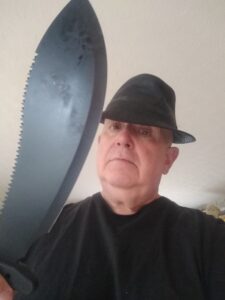
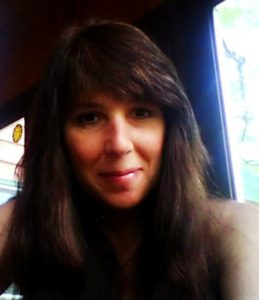







 P.J. Parrish (Kris Montee):
P.J. Parrish (Kris Montee): 




